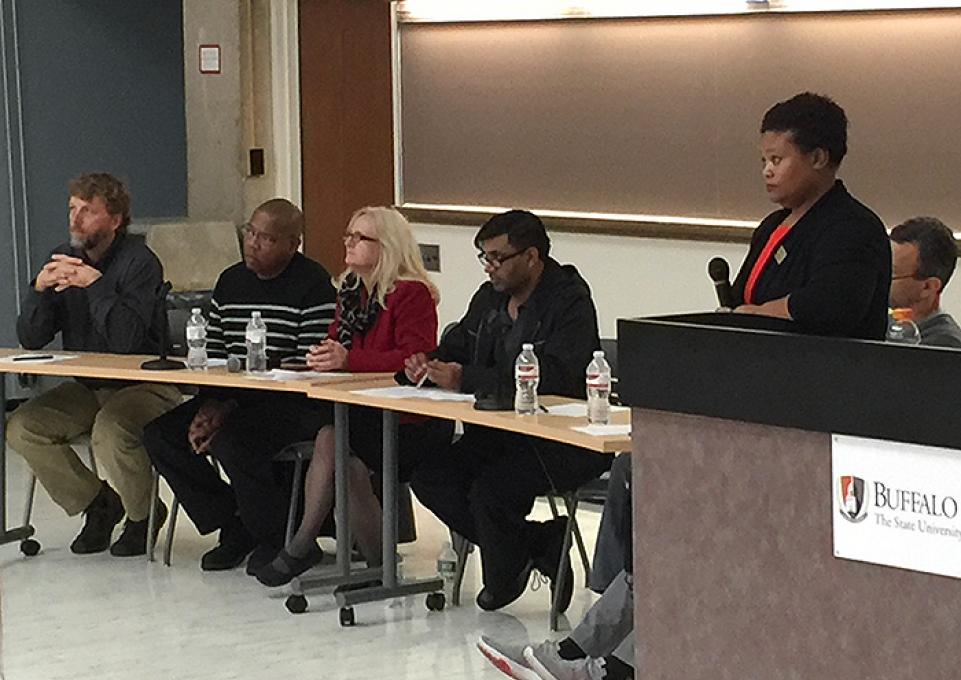
Last week a panel of faculty and staff shared different ideas on ways to respond to the recent presidential election, which has elicited strong emotions across the country—emotions that are reflected even more strongly on the nation’s campuses.
All six panelists stressed the importance of not only respecting the opinions of others but also of making the effort to understand them. The first question posed by moderator Lisa Morrison-Fronckowiak, director of Student Accessibility Services, was “What does respect look like in 2017?”
Drew Kahn, professor of theater and director of the Anne Frank Project, said, “The common currency we all share is hope.” Kahn, who takes a group of Buffalo State students to Rwanda every year, said that it is important to take positive action.
Eric "Luke" Krieg, chair and professor of sociology, said “There is no need to disrespect each other. This election revealed the degree to which we don't know each other, and we have an opportunity to respond.”
S. Marlon Gayadeen, assistant professor of criminal justice, reminded the audience, “People aren’t coming from a bad place. We are the children of our parents; we each see the world through our own unique lens.”
Steve Peraza, assistant professor of history and social studies education, said that issues did not surface in the presidential campaign. “The prevalence of socioeconomic inequality is the real issue,” he said.
Susan McCartney, director of the Small Business Development Center and a lecturer of business, said, “We can’t lose our strength as members of the higher education community. Part of that strength is being informed.”
Anthony Neal, associate professor of political science, said, “I have taught students from many different backgrounds over the years, and I can’t conceive of hating any of those students. It starts with respect.”
Next, Morrison-Fronckowiak asked, “How do we address the fears so many of our students have expressed?”
The panelists responded in two ways: advocating action as an antidote to fear and knowledge as a tool in responding to a political climate many students find threatening. In responding to a question about the Electoral College, Neal said that he didn’t necessarily see a need to change it. “Many people were asleep,” he said, "and too many didn’t vote.” McCartney strongly advised students to get involved with the political process by working for candidates who shared their values, and by running for office themselves.
The college plans to continue to offer students opportunities for dialogue with faculty, staff, and each other. Karen Clinton-Jones, director of Equity and Campus Diversity, and Jason Parker, diversity program coordinator, reminded attendees of the programs available through the Equity and Diversity and Professional Development offices.
